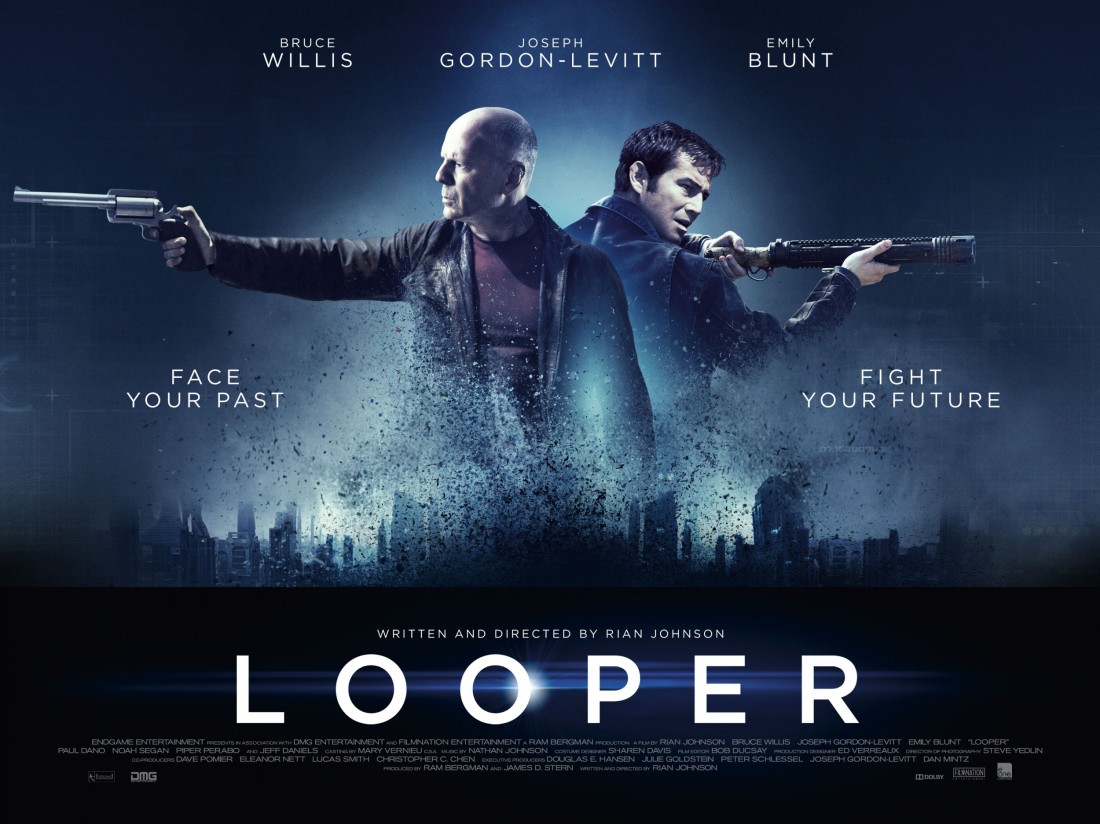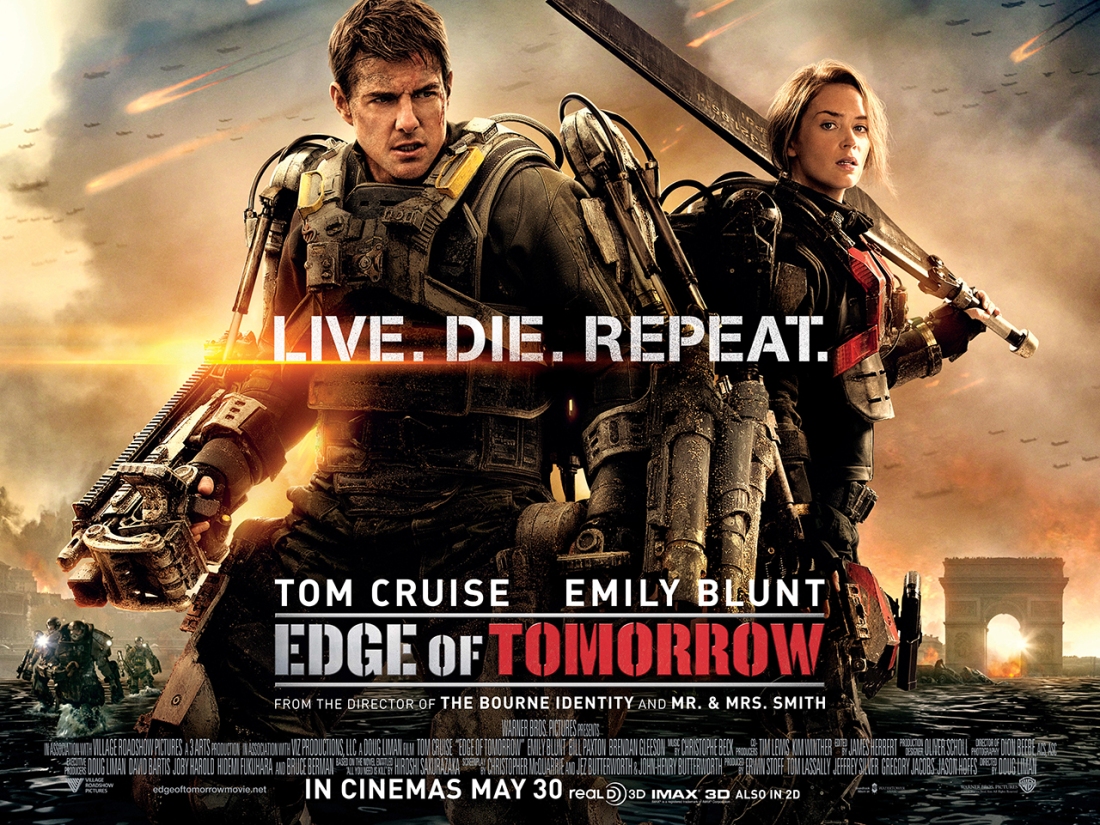Disclaimer: Any opinions expressed within this blog are the opinions of the author(s) and not those of University College London. This blog does not represent or endorse the accuracy or reliability of any information, content or advertisements contained on, distributed through, or linked, downloaded or accessed from any of the services contained on this website. You hereby acknowledge that any reliance upon any materials shall be at your own risk. This blog reserves the right, at its sole discretion and without any obligation, to make improvements to, or correct any errors or omissions in any portion of the service or the materials.
Why is science fiction obsessed with the future?
Science fiction’s obsession with time and specifically the future is an undeniable fact. Movies such as The Terminator, Blade Runner or even Wall-E are set in the future and all share another common theme – a warning of what the future may hold. The future is often presented as a bleak dystopia and this is what makes science fiction so successful, as it is the only genre that depicts how society can be different.
Furthermore, not only does science fiction provide a warning of the future it gives a certain perspective to the way society is today as well.
Although the future is often represented in science fiction as perhaps an extreme and exaggerated reality, it must also be believable 3to audiences. What makes science fiction based in the future so appealing is that it is often related to the latest developments in science and technology meaning that the dystopian future presented never seems too far-fetched.
A good example of this is Charlie Brooker’s anthropological TV series Black Mirror in which each episode tackles different ways in which technology can impact society. In one episode titled Nosedive, society is depicted as a pastel, perfect world where social media has completely taken over and one’s ‘rating’ (similar to the rating given to Uber drivers) is what determines your place in society. The higher the ‘rating’ the more advantages and preferential treatment you are given. This is not unlike the society we live in now, popularity on social media reaps many benefits and it is largely possible that in the near future this obsession with social media only grows. This depiction of the future serves as an unsettling warning to those in society today of how social media can change the world we live in.

Another example is Pixar’s Wall-E, a film which depicts Earth as nothing more than a landfill. The animated film showed a lot more than just a lovable robot designed to clean garbage but presented us with a world not far from our own. 2.12 billion tonnes of waste is produced globally each year and this number is only growing – Earth might very well soon be simply a planet of trash. Self-driving cars by Tesla and Google are also similar to those in Wall-E. Once again, science fiction is through a story set in the future, warning audience of the way we live in society now and the major impact it will make in the near future.
This obsession of science fiction with the future may appear to simply be a way to create intriguing, appealing stories to the audience yet underlying this is also a message relating to the issues of society today. Science fiction’s obsession with time provides not only makes for better entertainment yet also raises awareness to global concerns. Science fiction’s obsession with time goes beyond simply the future, it is also immensely interested in time travel.
Infinite lives or the Armageddon?
Time travel opens up many possibilities in science fiction, creating otherwise inconceivable novel scenarios. This tactic is used to great effect in two recent sci-fi movies: Looper (2012) and Edge of Tomorrow (2014).
We usually think of time as something constant that is moving in a straight line, something which cannot be stopped. In Looper however, there are multiple timelines in existence at ones, none of which are final. They are all interacting with each other and character actions can create or end these timelines. Besides time travel, this film also has telekinetic powers (move objects with one’s mind) as a major plot-point. There is a repetition of a thirty-year period which creates a loop in time.

Looper (2014), Rian Johnson
In Edge of Tomorrow there is only one single day that is repeated constantly. The main protagonist has to relive the same day of a terrifying alien invasion forever with his memories retained. He starts the day again when he dies but no one around him remembers anything. By the end of the day he has to stop the alien invasion.

Edge of Tomorrow (2014), Doug Liman
In both movies the protagonist has to face death but the outcomes are the exact opposite. In Edge of Tomorrow the concept of time is set up as such so the hero cannot possibly die. Death essentially becomes meaningless. This is just as frightening of a concept as in Looper where if our protagonist dies, he virtually erases himself from existence as his older self disappears. Immortality vs getting completely erased from existence are on the opposing end of the scale but both carry terrifying implications.
*SPOILER ALERT*
The two movies reach a very similar conclusion. Both protagonists are presented with a choice at the end of the movie: a choice between life and death. In order to save humanity and the future, the protagonist has to sacrifice himself. Both instances mean the breaking of the time-loop in order to definitely change the future where only one timeline exists. Although this timeline saves the future from doom, the protagonist does not have a place in it. In the end the heroes choose death. Although in Edge of Tomorrow the protagonist miraculously survives by creating another time-loop, in the end the importance was on the making of that choice. This narrative is very reminiscent of how Jesus sacrificed himself in order to save humanity. Edge of Tomorrow also evokes the resurrection of Jesus by bringing back the hero from death.
End of Spoilers
By the end of both movies time returns to its normal state with the implication that future is safe but we never actually get to see this future. Although we are presented with the idea of circular time it gets broken as a resolution, suggesting that ultimately a linear time-line is the normal one.
Concepts of Time.
Both Looper and Edge of Tomorrow deal with the notion of cause and effect. Both films reveal that time is ultimately linear- abandoning the timelines created by the “wrong” choices that different characters make. Both of these films also have the same effect, the end result of each film is revealed to be seemingly set in stone before any of the actual story takes place. What is actually essential to the concept of time within the two stories is the manipulation of causation that brings about a consistent end. This is where one answer lies to the question: Why is science fiction obsessed with the future? When you can play about with causation, and future effect in other stories, you can alter regret. If the notion of how is up for transformation- then so is the notion of unavoidable mistakes. This particular way of looking at cause and effect challenges conventional ideas about time because it allows for repetition and multiple stories within single lane narratives.
This is not the only answer to questioning Sci-Fi’s relationship with time. Unlike most other genres, science fiction has the possibility to encompass almost all themes within itself, romance, war, loyalty, friendship, redemption, even comedy. The list goes on. What the future setting is able to set apart from all of this is the ability to extrapolate these themes into a context that is removed from present constraints (such as reality, social constructs etc etc). As said, in some types of Sci-Fi, like dystopian stories such as George Orwell’s 1984 or the previously mentioned Black Mirror, this is used to criticise our current societies, or predict future problems. In others it is used to explore a sub-genre that peaks science fiction’s interest in the future and deeply challenges conventional ideas about time: Time travel philosophy.
In almost all Sci-Fi that explores time to some degree, questions will arise surrounding the philosophy of time. Back to the Future assumes that actions (causes) will have different and lasting consequences (effects) on a single timeline. In Miss Peregrine’s Home for Peculiar Children time exists in penetrable bubbles- accessible by wormholes where everything is in a causal loop. The television series Dr Who abandons the whole idea of a single time travel philosophy altogether, with fixed events, causation and no causation all existing in a mish mash of “wibbly wobbly, time-y wimey… stuff.” (Blink 2007). They all deal with time paradoxes. Some are obvious, such as the grandfather paradox. Others are less obvious, winding into the plots themselves- such as The Impossible Girl in Dr Who where the effect of death seems to be able to repeat itself over and over again despite any and multiple causes. Almost all Sci-Fi alters consumer’s perceptions of time in this way.
Ultimately, science fiction is medium through which we tell stories. As much as it has scope for social and “scientific” criticisms, the reason the future is so obsessed over is because it allows for a seemingly infinite amount of narrative possibilities (like fantasy). Writers of all kinds have harnessed this to create multiple strains of time travel in Sci-Fi, forcing the public to unconsciously engage with many different types of time travel philosophies that challenge conventional concepts of time itself.
